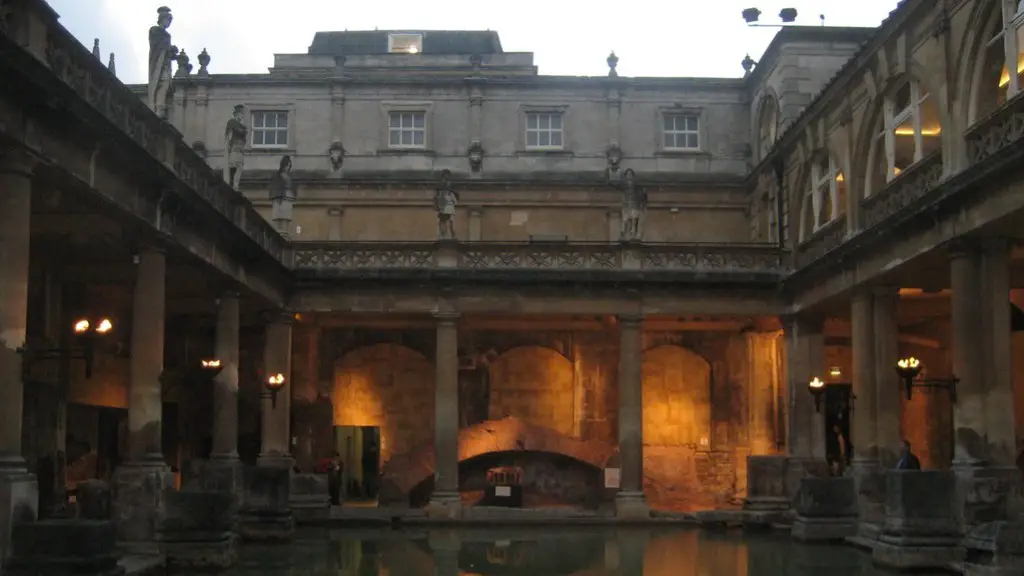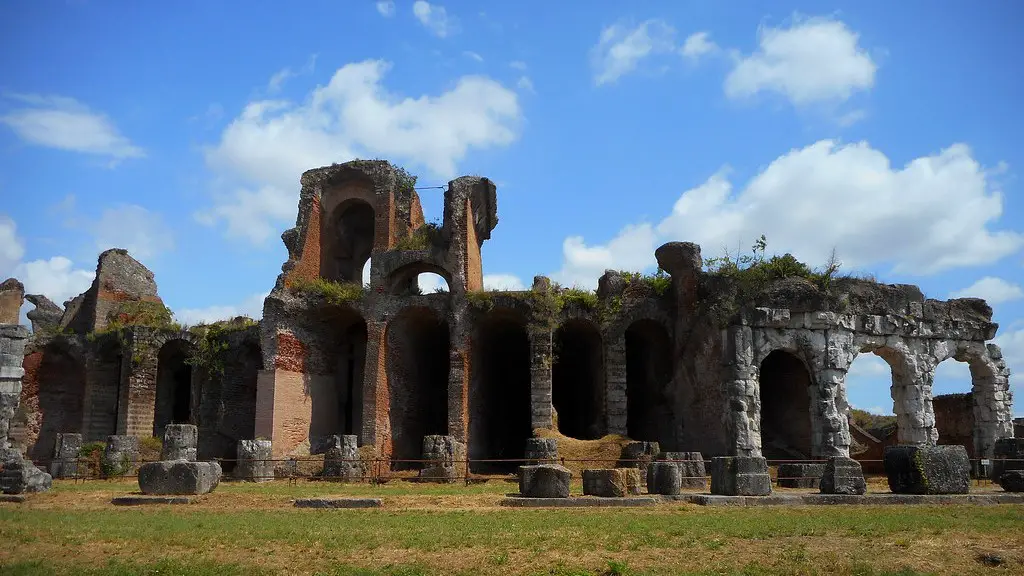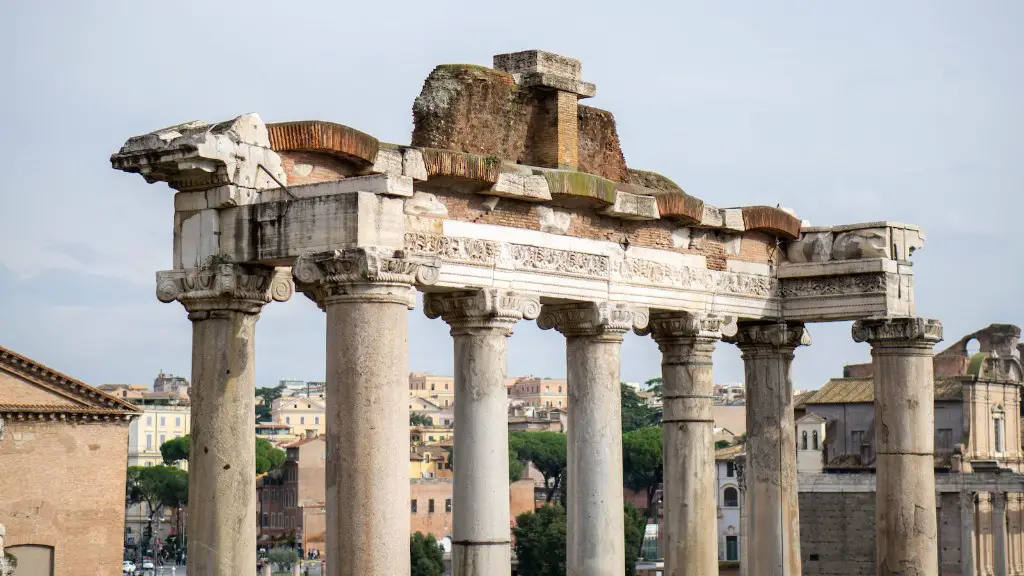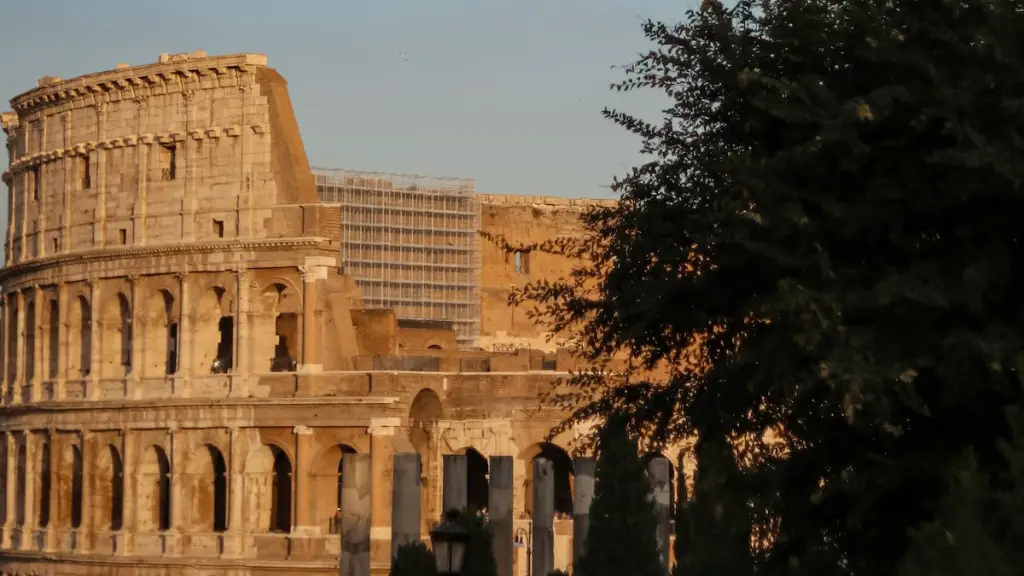No, surname does not necessarily mean you are related to ancient Rome. The word surname comes from the Latin word “surnomina” which means “family name.” It was not until the Middle Ages that the word began to be used to indicate a person’s last name. There are many last names that are derived from places, occupations, or nicknames, so a person’s surname does not necessarily indicate their heritage.
There is no one definitive answer to this question. It is possible that your surname could be derived from an ancestor who lived in ancient Rome, but there is no guarantee. It is also possible that your surname has no connection to ancient Rome whatsoever. If you are interested in learning more about the origins of your surname, you may want to consult a genealogist or conduct your own research.
Did ancient Romans have surnames?
Roman citizens originally had names that were similar in format to modern English names. For example, Gaius Marius had a personal name followed by a family name. However, as time progressed, additional features were added to names in order to show wider family relationships and origins.
Roman men were required to have at least two names, the praenomen (first name, given name) and nomen (principal name, gens name). The nomen would usually end in -ius. Many had a third name, the cognomen (additional name, nickname; often denoted a branch of a family).
What does surname Roman mean
A habitational name is a name that is derived from a specific location. In this case, the name Romain is derived from the city of Rome in Italy. This name was likely given to someone who had a connection with Rome, either through living there or through a pilgrimage. The name Romain would therefore be a nickname for someone from Rome or Italy in general.
The name Rome is derived from the Latin name Roma. The name Roma is thought to be derived from the Etruscan word rumon, meaning “teat”, or from the Greek word rhome, meaning “strength”. The name Rome is also thought to be derived from the Sabine word ruma, meaning “teat”. The Italian city was commonly pronounced and spelled Room in English until the 19th century.
What nationality were ancient Romans?
The early Romans were a part of the Latin homeland known as Latium. They were Latins themselves and their culture was a mix of Latin and Etruscan. The Roman Republic was founded in 509 BC, and grew to become one of the most powerful empires in the world.
It is believed that the descendants of ancient Romans would be people of Western and Eastern European origin. Some would specifically point to Italy and the Italic people, but “Roman” is not really a racial or ethnic group. It is more of a citizenship. Romans mixed in with many European, Latin, Germanic, and some Slavic tribes.
What is the most common surname in Rome?
The most common surnames in Italy according to Italianames.com are Rossi, Russo, Ferrari, Esposito, Bianchi, Romano, Colombo, and Ricci.
A surname is a name that a person has in common with other family members, as distinguished from a given name or Christian name. A surname is a name added to a person’s name, as one indicating a circumstance of birth or some characteristic or achievement.
How were surnames chosen
Surnames were originally added to people’s first names to distinguish them from other people who had the same first name locally eg Robert the baker or Robert at the wood.
Rome is a common surname of many notable people. Some of them are Aaron Rome, Adam Rome, Adolphe Rome, etc. All of them have made significant contributions in their respective fields and have earned fame and recognition.
Is Roman a surname?
There are many notable people with the surname Roman. Some of these people include Adalberto Román, a Paraguayan football player, and Roman, a Polish singer. The surname appears in many countries, indicating that it has a long and rich history.
Ramen was originally called Shina soba, but today the word has acquired a negative connotation due to its association with Japanese imperialism.
When were surnames used in Italy
The 15th century was a time of growth for the Italian population. As more families needed to be distinguished from one another, Italians in the upper classes started to add surnames. This practice became more common over time and is now the norm in Italy.
Roman is a name of English and Scottish origin, derived from the Roman family name. The name Roman is a variant of the Roman family name, with the genitive or post-medieval excrescent -s. The Dutch, German, and Catalan form of the name is patronymic, from the personal name Roman.
Are Roman names Italian?
Roman is a Latin name meaning “Roman” or “Byzantine” and is also a given name in many modern languages.
It’s interesting to think about how our perceptions of history would change if skin pigmentation was taken into account more often. It’s strange that something so visible is so often ignored, but I suppose it just wasn’t important to people in the past. Still, it would be fascinating to know more about the diversity of the Roman empire and to see people of all different backgrounds represented in history books.
What skin color were Romans
There is evidence that the early Romans had a wide range of skin tones, from light brown to pale skin. This is thought to be due to the influence of different cultures from around the world.
While it is possible that some Italians alive today are directly descended from people who lived in Italy during the Roman era, it is more likely that they have at least some admixture from other European peoples.
Final Words
There is no definitive answer to this question as it depends on the origin of the surname in question. However, some surnames may be associated with ancient Rome if they are derived from Roman names or if they have a Latin root.
There is no definitive answer to this question. Some people believe that surname does mean you are related to ancient Rome, while others believe that it is merely a coincidence. Ultimately, it is up to the individual to decide what they believe.





